An exhibition on recommendation algorithms
Pavillon Sicli, Geneva
Opening: 26 May 2025
In today’s hyper-connected world, recommendation algorithms have quietly become our everyday guides. They influence the music we listen to, the news we read, the things we buy, and even the people we connect with. These systems help us navigate an overwhelming amount of information by offering content that seems relevant and convenient. Using powerful AI and machine learning, they learn from our behavior—often without us realizing—and use techniques like collaborative or content-based filtering to guess what we might want next.
However, this convenience comes with hidden costs. Are these “neutral” systems really neutral? What kinds of biases are built into them? And how does being constantly nudged toward certain choices shape our tastes, opinions, and how we see the world? The idea behind the “nudge” theory is that people often react to their environment without much thought. Recommendation systems work in a similar way—gently steering our behavior through design and personalization. In their drive to keep us engaged, they often repeat what we already know or like, which can limit discovery, trap us in echo chambers, and make culture feel more uniform. Ironically, having too many suggestions can also make it harder to choose, leading us to passively go along with whatever the algorithm serves up.
Presented at the Pavillon Sicli in Geneva, 404 looks beneath the surface of these powerful technologies. The exhibition features new student projects alongside work by invited artists and designers, all exploring the promises and problems of recommendation systems. Rather than simply accepting technology as a useful tool, the artists featured in the exhibition ask tough questions and offer alternative perspectives. They aim to:
1 Unveil the Mechanics – Making the invisible processes behind recommendation systems more understandable by exposing how they work, what they rely on, and what assumptions they carry. For example, Higher Resolution by Caroline Sanders reveals the hidden data structures behind algorithmic personalization, showing how they shape our online experiences.
2 Challenge the Bias – Examining how these systems can reflect and even amplify existing biases—whether based on demographics, popularity, or commercial interests. Jake Elwes’ The Zizi Show confronts these issues by playfully critiquing how AI handles gender and identity, using deepfake drag performances as both critique and celebration.
3 Explore the Effects – Looking at how algorithm-driven content impacts personal choice, cultural diversity, and the experience of stumbling upon something new. Trevor Paglen’s works like Echo Chamber and ImageNet Roulette highlight how AI systems classify and interpret the world, and the unexpected consequences that can follow.
4 Imagine Alternatives – Asking what other ways of navigating information might look like—systems that encourage exploration, diversity, and user control instead of just predicting our next click. A guest lecture by Tera Brain invites visitors to think about post-algorithmic futures, where curiosity and ambiguity play a larger role in how we interact with technology.
Through interactive installations, speculative designs, data visualizations, and critical objects, 404 invites visitors to reflect on their own relationship with recommendation algorithms. It opens up space for discussion about how these systems shape our digital lives, what we trade in exchange for personalized content, and how we might find a better balance between efficiency and meaningful human experience. In a world increasingly shaped by algorithms, how can we take back control and shape our own paths?
Higher Resolution — Caroline Sinders
Higher Resolution is a collaborative project developed in 2019 by Caroline Sinders and Hyphen Labs as lead artists for the Tate Exchange at Tate Modern. The exhibition explored the complex themes of privacy, surveillance, AI, and digital rights through interactive artworks, expert talks, and participatory workshops. Over two weeks, the program brought together voices from Amnesty International, Change.org, the BBC, and the Carnegie Trust, among others. The physical installation was designed to reflect the various layers of online privacy we navigate daily. It included symbolic spaces like the Town Hall (Twitter), Park Bench (Facebook), Living Room (WhatsApp), and Loo (private text conversations). The exhibition featured thought-provoking art installations addressing issues such as facial recognition, algorithmic bias, and surveillance capitalism. Visitors engaged directly by voting on invasive tech features to ban and interacting with a floor schematic that mapped out privacy in daily life. This immersive project highlighted the urgent need to critically examine how emerging technologies shape our societies and personal freedoms.

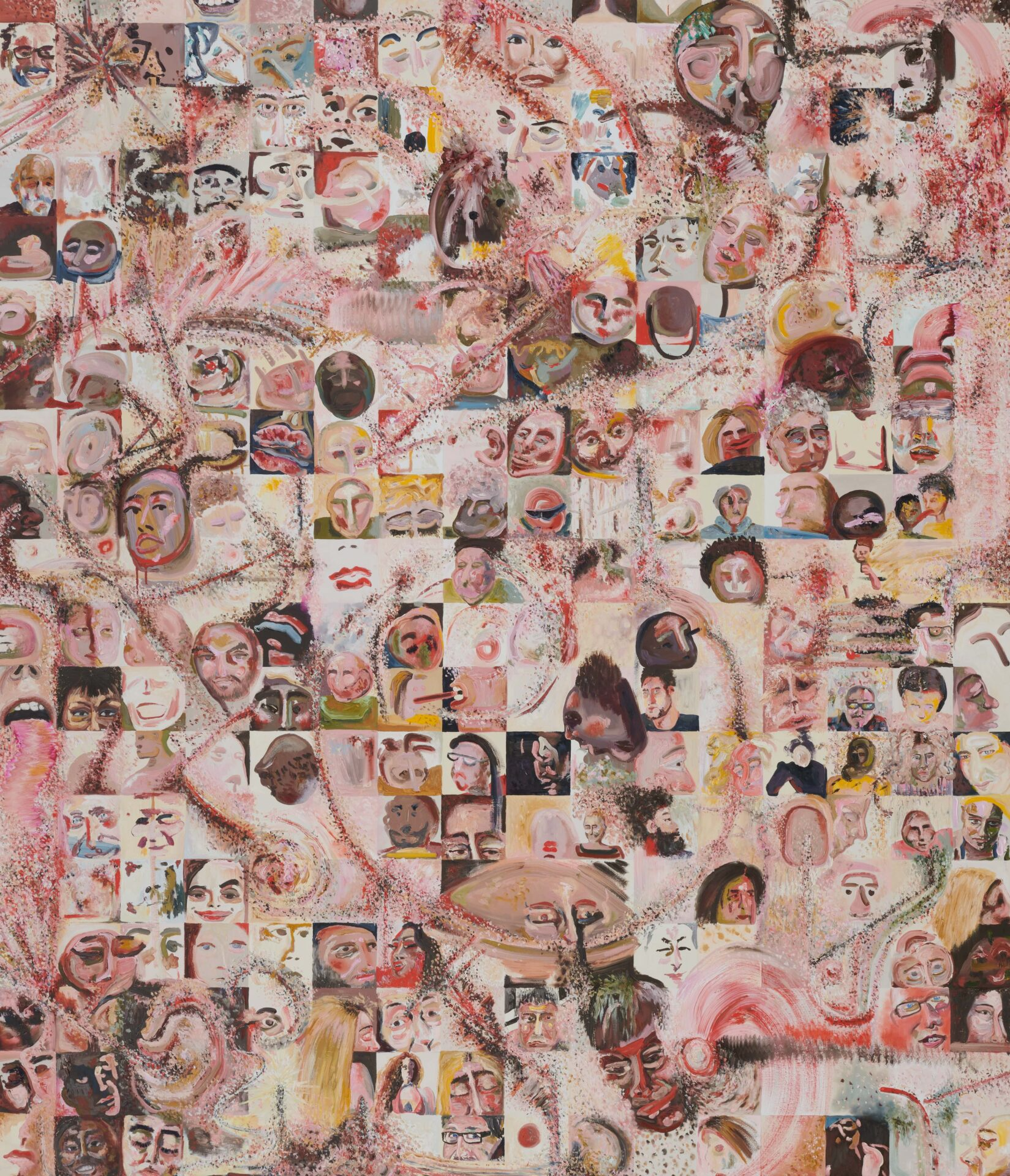
Dating App — Amber Boardman
Higher Resolution is a collaborative project developed in 2019 by Caroline Sinders and Hyphen Labs as lead artists for the Tate Exchange at Tate Modern. The exhibition explored the complex themes of privacy, surveillance, AI, and digital rights through interactive artworks, expert talks, and participatory workshops. Over two weeks, the program brought together voices from Amnesty International, Change.org, the BBC, and the Carnegie Trust, among others. The physical installation was designed to reflect the various layers of online privacy we navigate daily. It included symbolic spaces like the Town Hall (Twitter), Park Bench (Facebook), Living Room (WhatsApp), and Loo (private text conversations). The exhibition featured thought-provoking art installations addressing issues such as facial recognition, algorithmic bias, and surveillance capitalism. Visitors engaged directly by voting on invasive tech features to ban and interacting with a floor schematic that mapped out privacy in daily life. This immersive project highlighted the urgent need to critically examine how emerging technologies shape our societies and personal freedoms.
ImageNet Roulette — T. Paglen & K. Crawford
ImageNet Roulette is an interactive art installation that exposes the hidden biases embedded within artificial intelligence systems. Developed by artist Trevor Paglen and researcher Kate Crawford, the project utilizes a facial recognition algorithm trained on ImageNet—a widely used dataset in AI research—to classify uploaded photographs of individuals. The results often reveal unsettling labels, ranging from innocuous to overtly racist, misogynistic, or absurd, highlighting how AI systems can perpetuate harmful stereotypes and social prejudices. By allowing the AI to "speak for itself," ImageNet Roulette invites viewers to confront the flawed processes of categorization and classification inherent in machine learning. The installation serves as a critical examination of how datasets, often considered objective, are imbued with the subjective judgments of their creators. Through this work, Paglen and Crawford challenge audiences to reflect on the ethical implications of AI and the importance of scrutinizing the data that shapes our digital world.
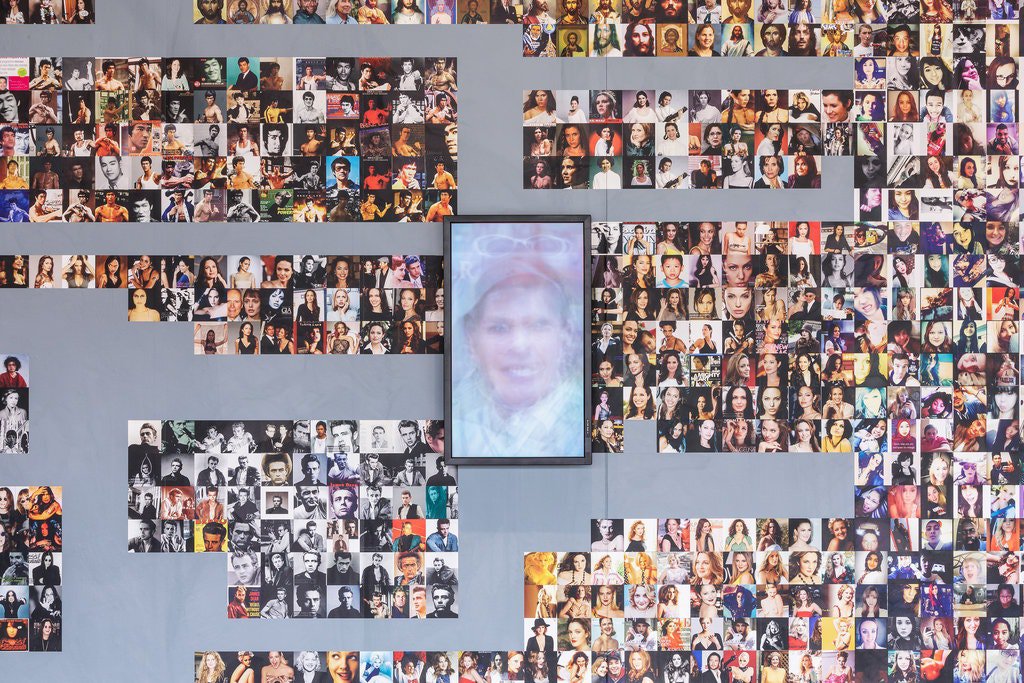
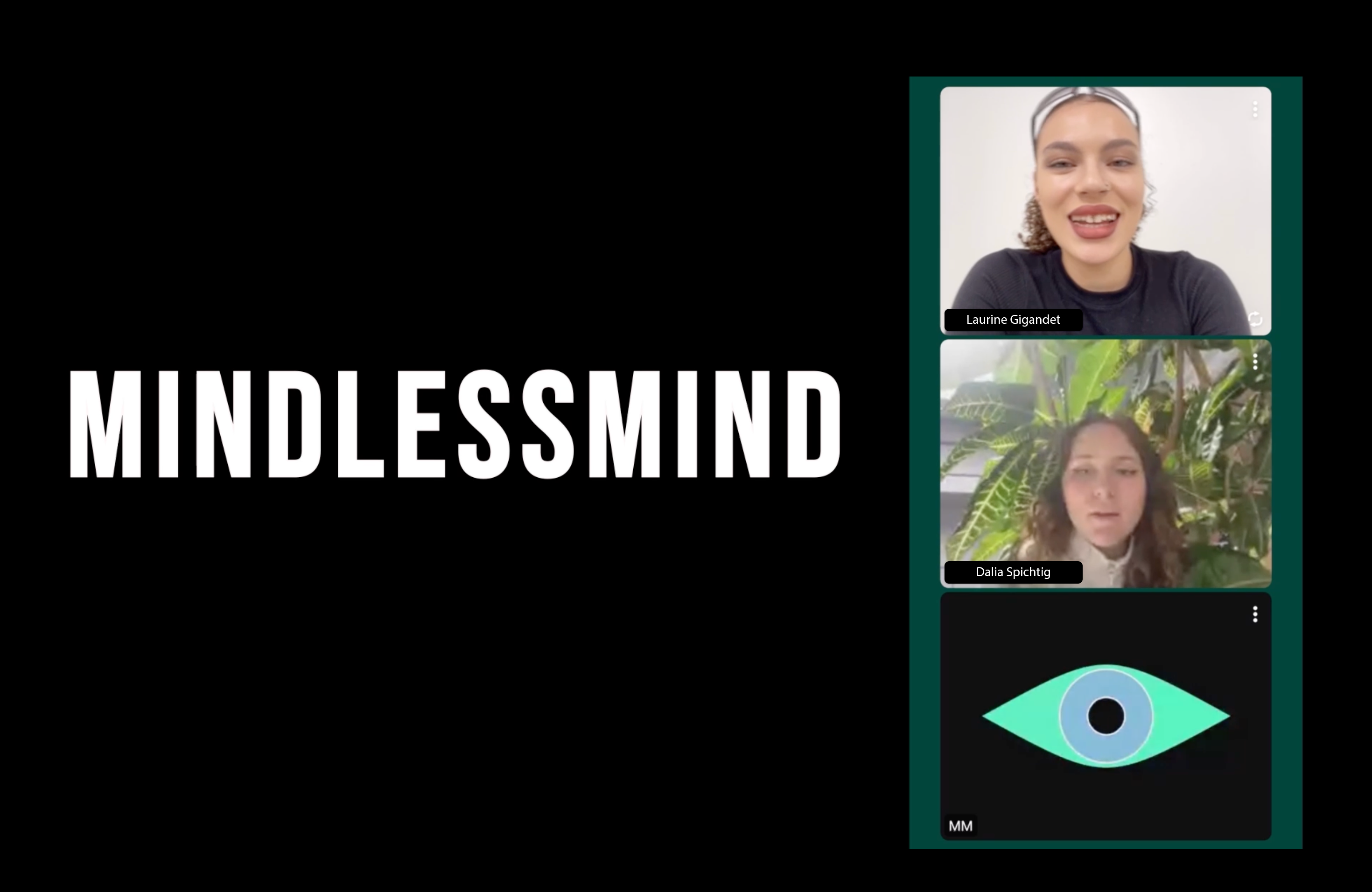
Mindless Mind — Dalia Spichtig
Mindless Mind is an interactive installation that simulates a FaceTime call—until an unexpected third party joins: an AI. Reacting in real time to users’ speech, gestures, and appearance, it interrupts and hijacks the conversation, making its presence impossible to ignore. By inserting an algorithm into an intimate exchange, the piece critiques the normalization of AI in private life. It confronts participants with a forced triad—human, human, machine—echoing how AI now infiltrates even our most personal interactions. Both performance and interface, Mindless Mind raises urgent questions: Can intimacy survive constant digital surveillance? What does it mean when connection is filtered through an algorithm?
Basket Buddy — Brikeld Hoxha
Basket Buddy is a tongue‑in‑cheek browser extension that automates our insatiable urge to consume. Once activated during an Instagram scroll session, it “watches” every reel, identifies products on screen, and instantly adds them to your Amazon cart. By maximizing efficiency—no decision required—it exposes the absurd lengths we’ll go to optimize our consumption. Simultaneously, it critiques today’s fetish for automation and the relentless “min‑maxing” of daily life, turning our passive scrolling into a conveyor belt of impulse purchases. Basket Buddy holds up a mirror to our algorithm‑driven habits, revealing the hollowness of convenience when it fuels constant, needless acquisition.
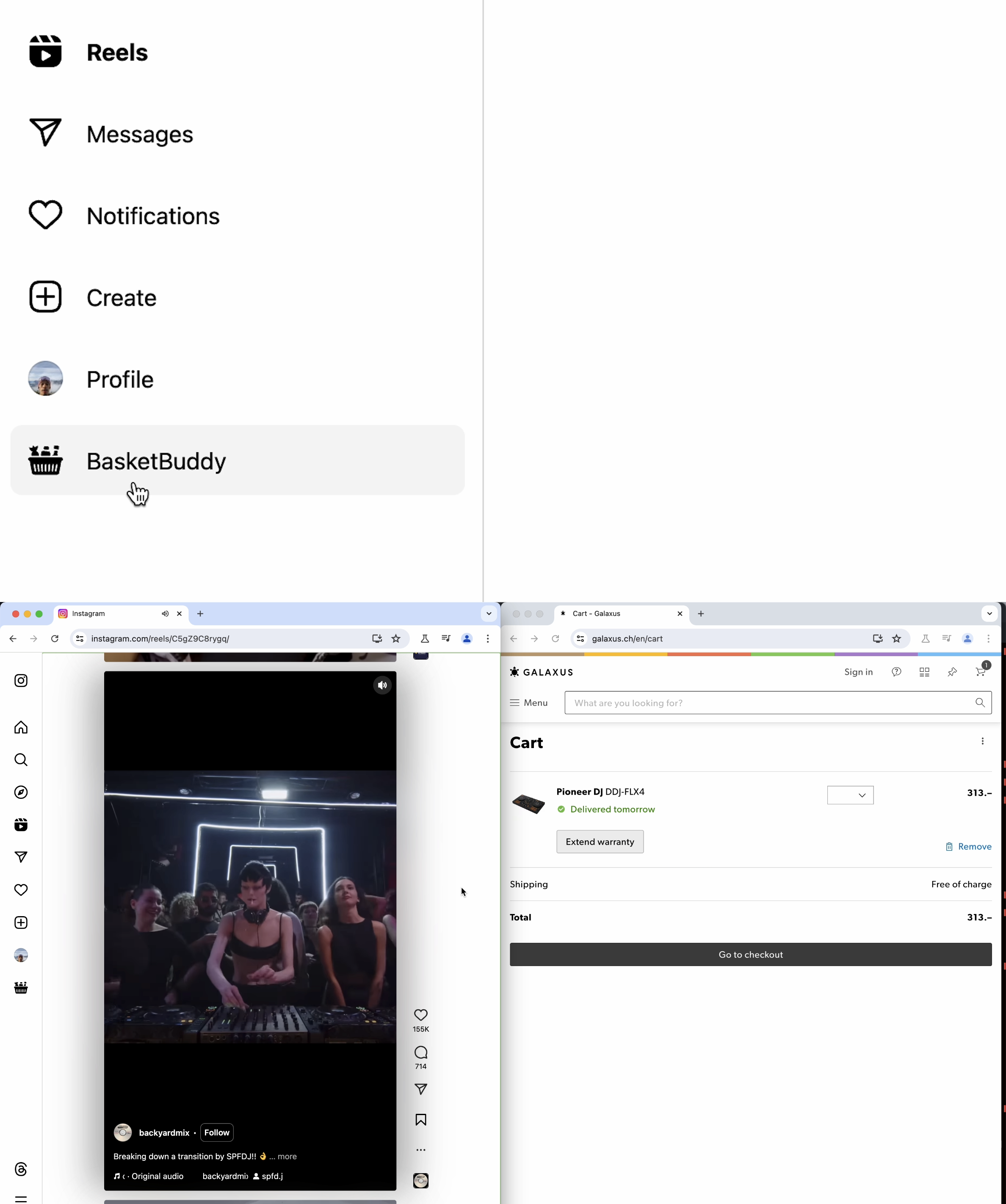
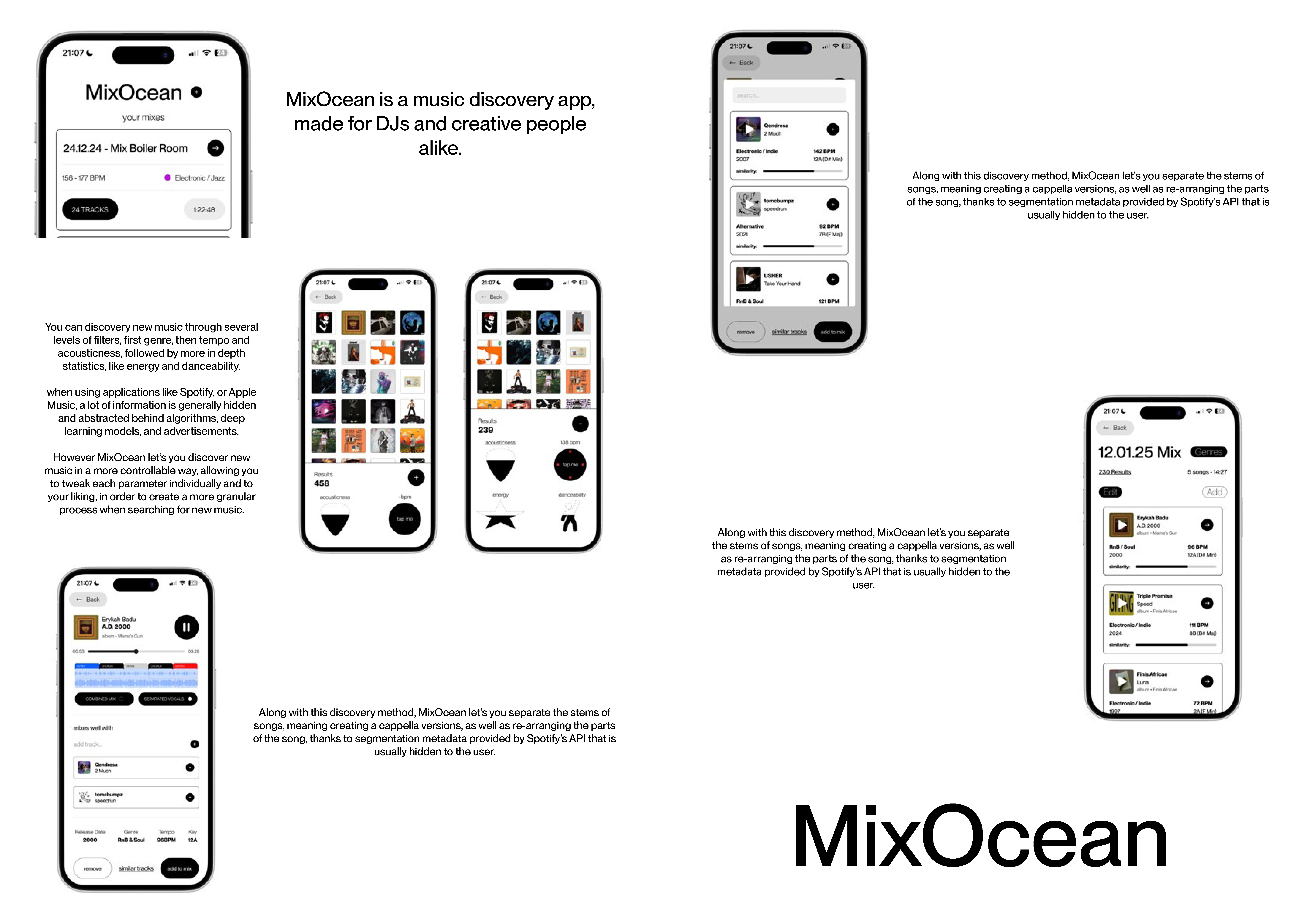
MixOcean — Andreas Abbaszadeh
MixOcean is a speculative tool that challenges the opaque recommendation algorithms prevalent in commercial music platforms. Where such systems often direct listeners towards familiar sonic patterns through undisclosed processes, MixOcean exposes the underlying metadata of music—such as energy, tempo, and instrumentalness—placing control directly with the user. This interaction transforms music discovery into an active, exploratory process.
© 2025 Pavillon Sicli. All rights reserved.
Made with ❤️ by the 404 team.